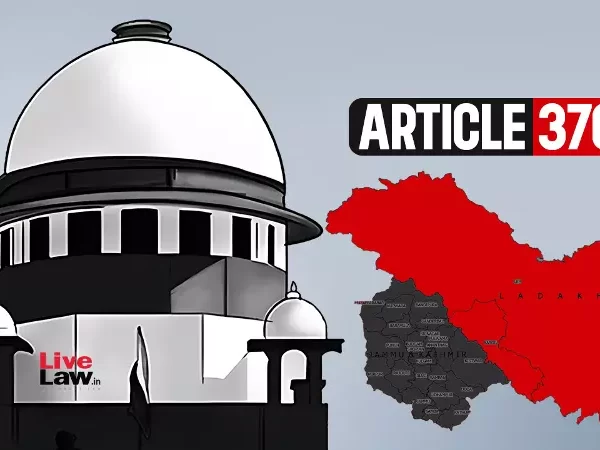Introduction:
Article 370 of the Indian Constitution has long been a subject of intense debate, sparking discussions on history, politics, and the constitutional framework of the nation. This blog aims to provide a comprehensive overview of Article 370, delving into its historical roots, significance, and the changes that have shaped its contemporary narrative.
Historical Context:
Enacted in 1949, Article 370 granted special autonomy to the region of Jammu and Kashmir, allowing the state to have its own constitution and decision-making powers, except in areas like defense and foreign affairs. The provision was seen as a temporary measure, given the special circumstances under which Jammu and Kashmir acceded to India in 1947.
Special Provisions:
- Autonomy for Jammu and Kashmir:
- Article 370 provided Jammu and Kashmir with a unique status, allowing the state a significant degree of autonomy in governing its internal affairs. The state had its own constitution, flag, and autonomy over matters except defense, communications, and foreign affairs.
- Citizenship and Property Rights:
- The special status accorded by Article 370 also extended to citizenship and property rights. Residents of Jammu and Kashmir enjoyed privileges that were distinct from citizens in other parts of India.
Controversies and Debates:
- Integration vs. Autonomy:
- The existence of Article 370 became a topic of contention, with some arguing for its abrogation to fully integrate Jammu and Kashmir into the Indian Union, while others advocated for maintaining the autonomy it provided.
- Changing Demographics:
- Critics argued that the special provisions under Article 370 hindered the economic development of the region and contributed to separatist sentiments. There were concerns about the impact on national integration and the rights of minority communities in the state.
Abrogation of Article 370:
In August 2019, the Indian government, through a Presidential order and subsequent parliamentary resolutions, effectively abrogated Article 370. This move was accompanied by the reorganization of the state into two separate Union Territories: Jammu & Kashmir and Ladakh.

Implications and Reactions:
- Constitutional Reorganization:
- The abrogation of Article 370 marked a significant constitutional reorganization, altering the relationship between the Union of India and the newly formed Union Territories.
- Regional and International Responses:
- The move garnered diverse responses, with opinions divided along regional and international lines. While some welcomed the decision as a step towards national integration, others raised concerns about its impact on the political landscape and regional stability.
Current Scenario:
As of the latest update, Jammu & Kashmir and Ladakh continue to function as Union Territories, with the Indian government emphasizing the need for development, economic growth, and enhanced governance in the region.
Article 370, with its complex historical roots and multifaceted implications, has been a subject of national discourse for decades. The abrogation of this provision in 2019 marked a significant moment in India’s constitutional history, reshaping the dynamics between the Union and the newly formed Union Territories. The ongoing impact of this decision on the region’s political, economic, and social landscape underscores the continued relevance of Article 370 in shaping India’s constitutional evolution.
Also read: Where to Buy Traveling Bags Near Me? Your Ultimate Guide to Stylish and Practical Travel Gear
Reference: LIVELAW NEWS NETWORK







2 Comments
[…] Understanding Article 370: A Historical and Contemporary Perspective […]
[…] Dances (Bon Odori):One of the most delightful aspects of the Bon Festival is the traditional dance known as Bon Odori. People of all ages gather in community spaces to participate in these lively dances, moving to the […]